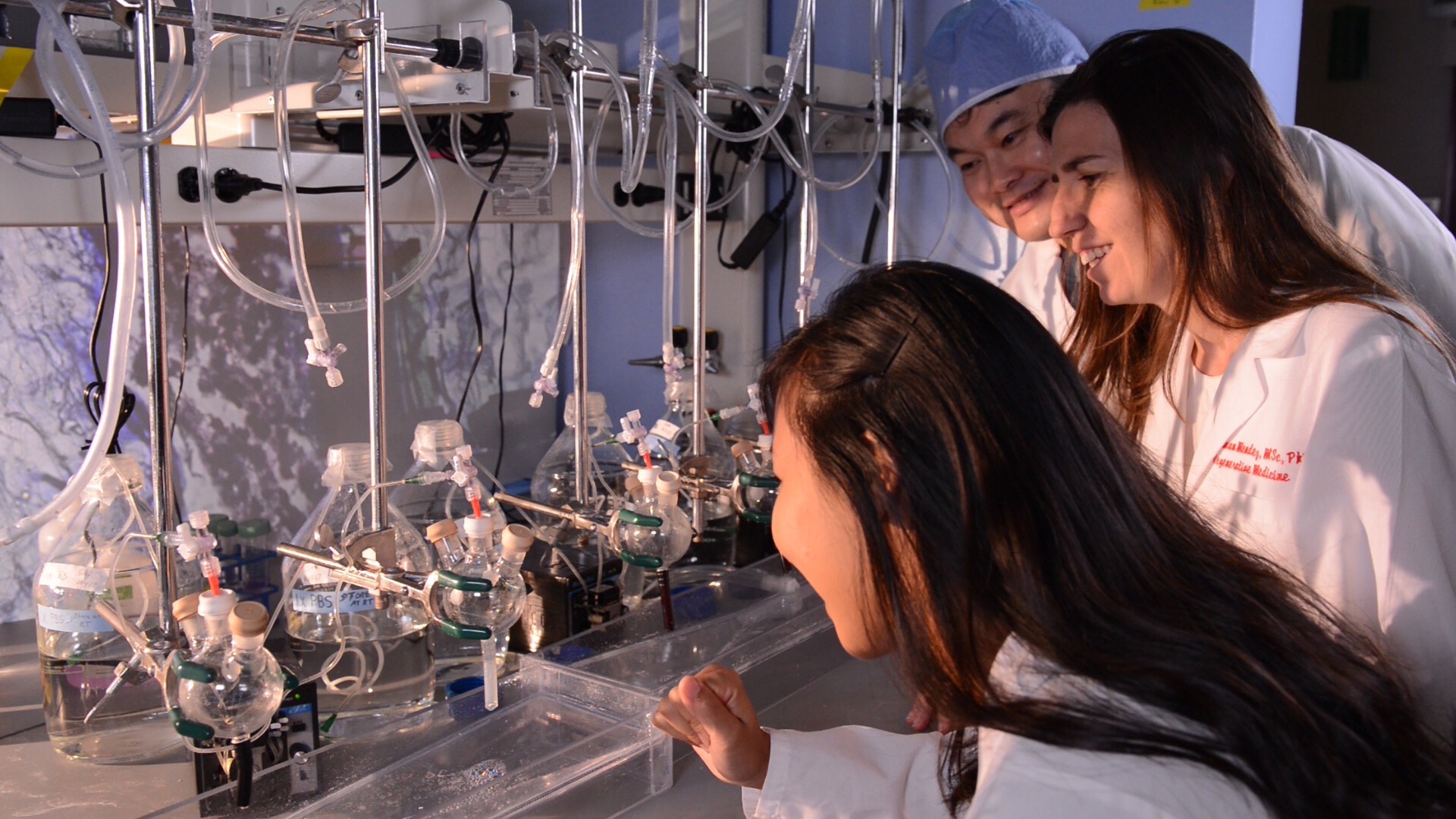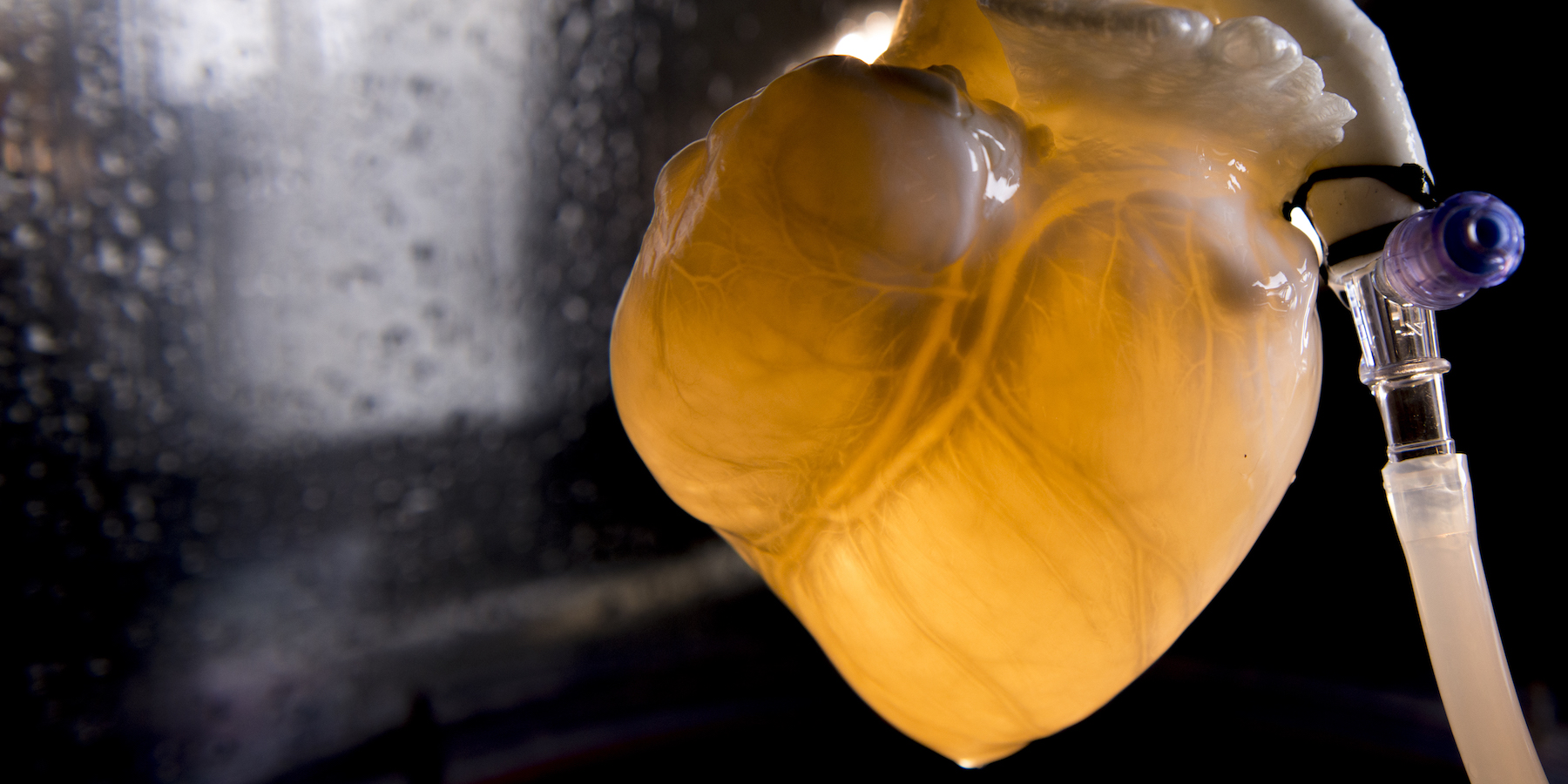For over twenty years, THI has committed major research resources to the field of regenerative medicine and cell therapy.
The Regenerative Medicine Research laboratories include the Biorepository and Sample Profiling Core Laboratory and the Organ Repair and Regeneration Research Laboratory.
THI Biorepository is First and Only CAP-Accredited Biorepository in State
The THI Biorepository team provides biobanking and standardized processing, profiling, and storage of patient samples for academic and independent research institutions in the United States and Canada.
The THI Biorepository houses the Cardiothoracic Surgical Trials Network’s Biorepository and Cell Profiling Core, both of which are funded by the National Heart, Lung, and Blood Institute of the National Institutes of Health. In its capacity serving the CCTRN, the THI Biorepository also conducts potency analyses on patients’ samples as requested by CCTRN investigators.
This past year, the THI Biorepository received reaccreditation by the College of American Pathologists (CAP) and remains the only CAP-accredited biorepository in the State of Texas and one of only 24 in the entire nation.
Great progress was made this year in furthering the science of engineering bioartificial organs and tissues. Most notably, the team has overcome one of the basic challenges in regenerative medicine: producing sufficient numbers of human cells to develop new therapies and build tissue-based drug test beds and organs. This breakthrough was achieved by using new technologies that allowed the researchers to routinely produce the billions of human induced pluripotent stem cells (iPSCs) needed to engineer a whole heart.
Underscoring the progress made, the team presented nine abstracts at the 2018 American Heart Association annual scientific meeting in Chicago, including the team’s research on induced blood vessel development in a pediatric-sized decellularized heart.
By the Numbers
 Collaborating to Accelerate Discovery
Collaborating to Accelerate Discovery
Enthusiasm for the potential of regenerative medicine has resonated with patients and families around the world since the 1990s. To succeed requires awareness, tools, resources, and collaborations. Several local, state, and national partnerships have made new discoveries possible.
Local collaborations were established to study primary graft dysfunction with Dr. Gabriel Loor, director of lung transplantation at Baylor St. Luke’s Medical Center. The team identified pre-transplant serum biomarkers that could predict the occurrence of primary graft dysfunction.
An important partnership with the State of Texas is the Center for Cell and Organ Biotechnology (CCOB), a collaboration between THI and Texas A&M University (TAMU). To date, this interinstitutional research collaborative supported 15 postdoctoral fellows at THI and TAMU and more than 30 undergraduate students at TAMU. We continue to have the best and the brightest students and staff, giving rise to new ideas and the next generation of scientists and clinicians. This year alone, two staff members were accepted into residencies, one lab member was accepted to medical school, and three were accepted to graduate school. In 2019, two CCOB-funded doctoral students will complete PhD degrees through TAMU’s College of Veterinary Medicine and Biomedical Sciences.

Director Spotlight
Dr. Doris A. Taylor has served as the Director the Department of Regenerative Medicine Research since its founding in 2012. This year, Dr. Taylor was recognized as a Fellow of the European Society of Cardiology, an honorary title awarded by a jury of her peers in recognition of her international achievements and contributions to cardiology. She was also featured in the PBS Nova program “Transplanting Hope.” The program followed the journey of patients and their families awaiting life-saving organ donations and featured Dr. Taylor’s research efforts to grow artificial organs, a strategy that could reduce or eliminate patients’ dependency on donated organs.






